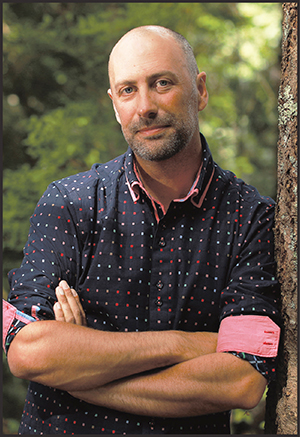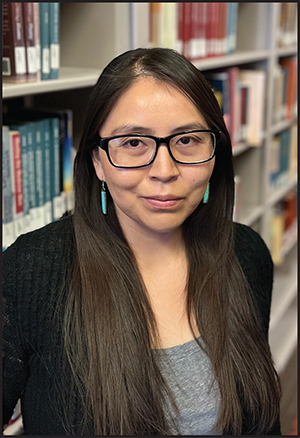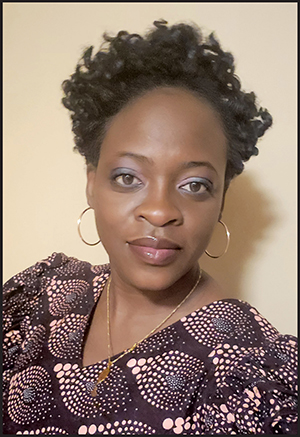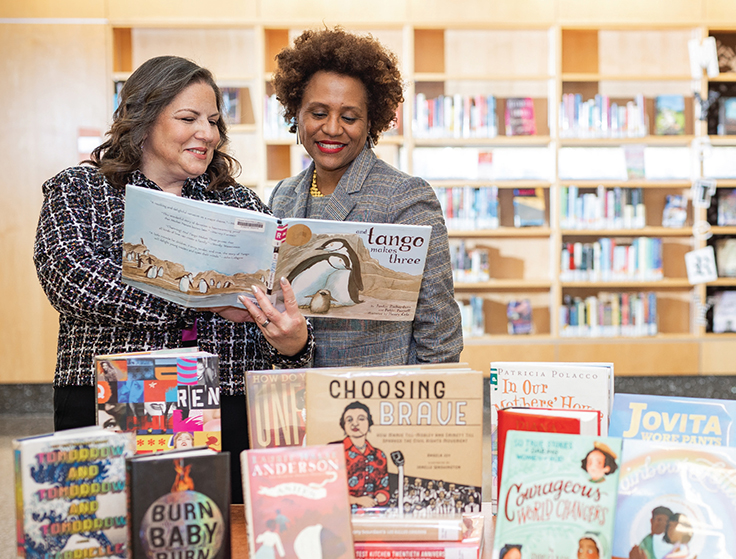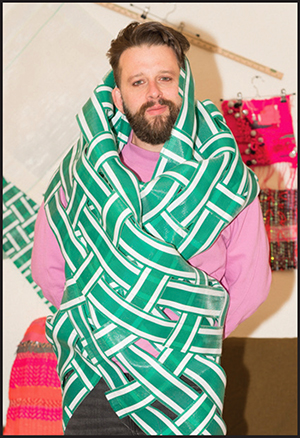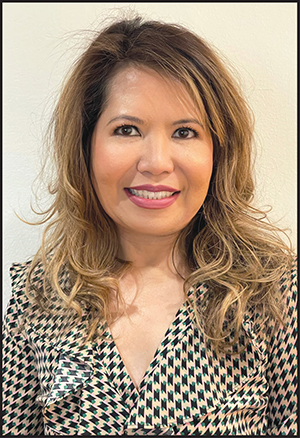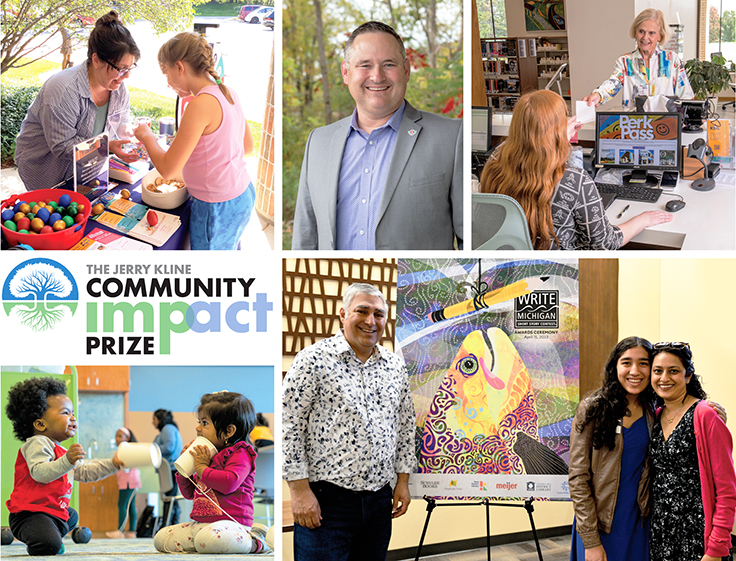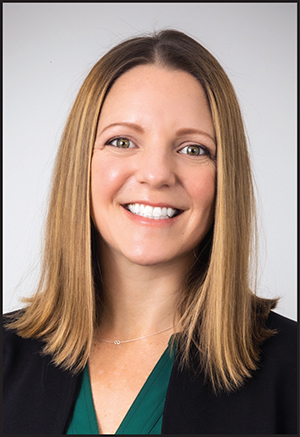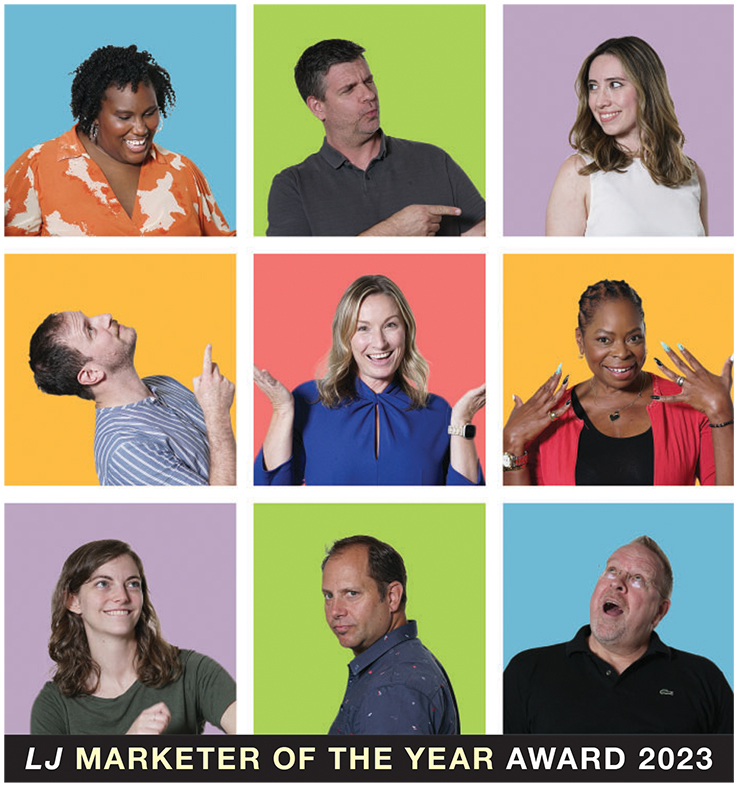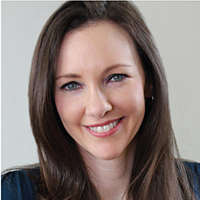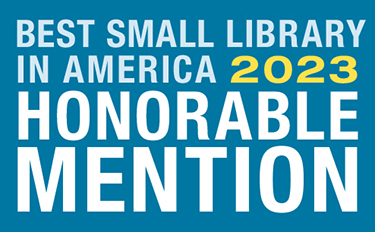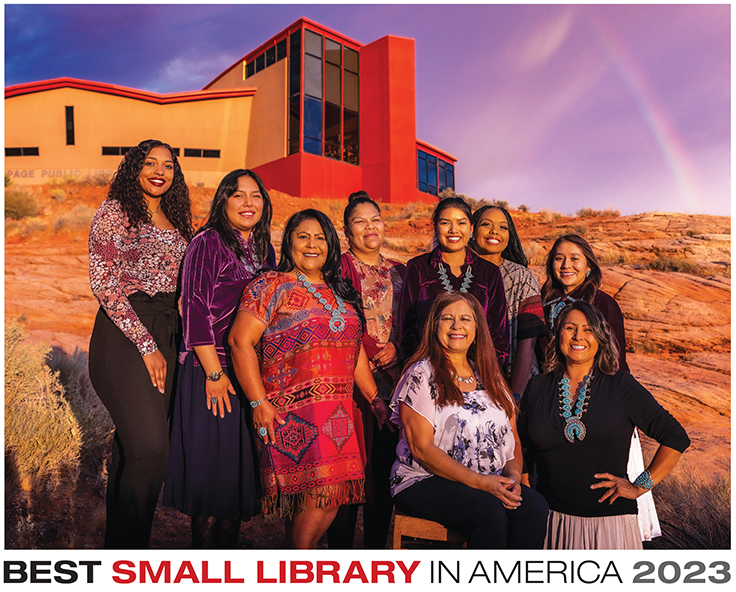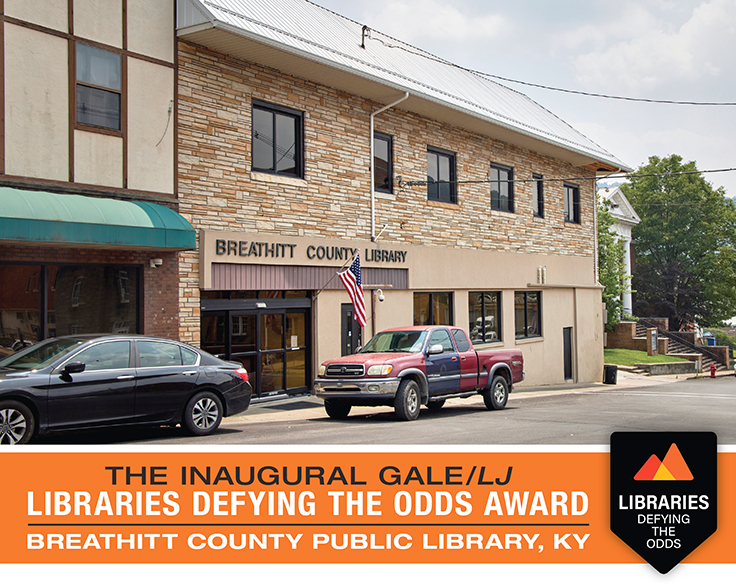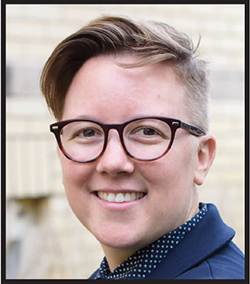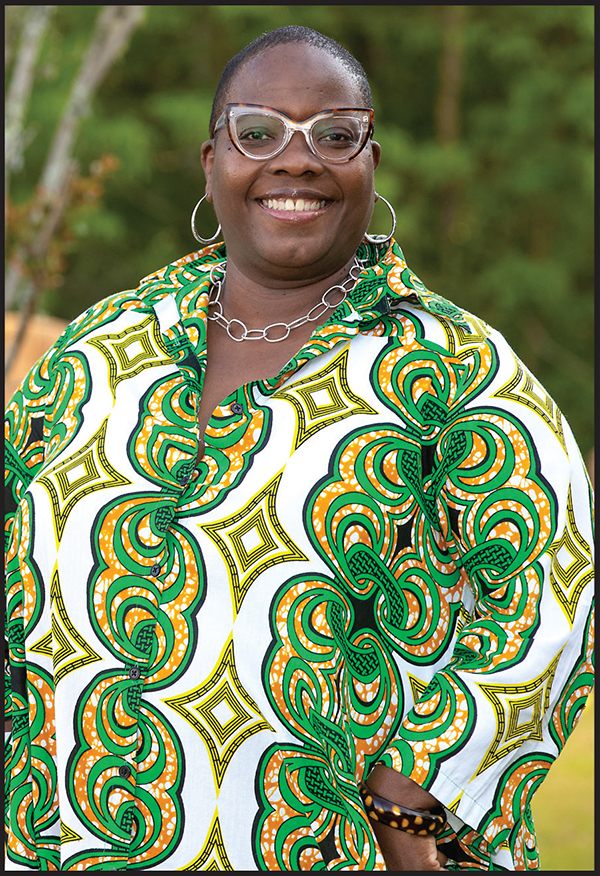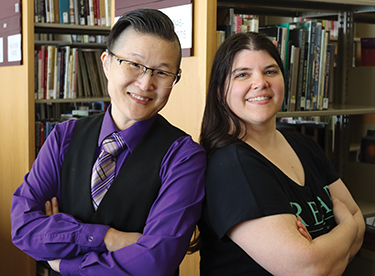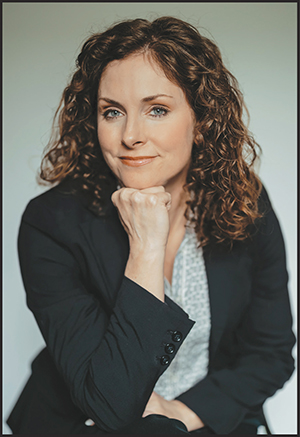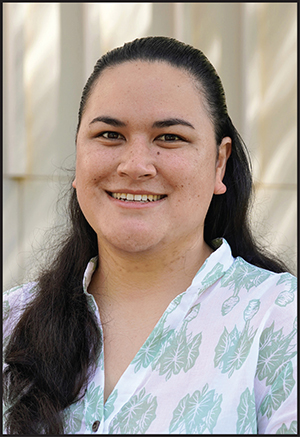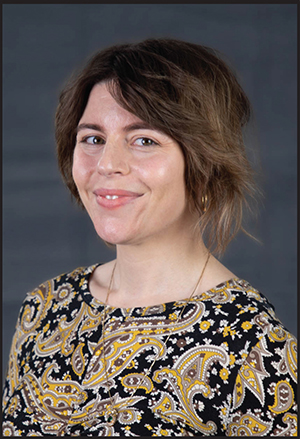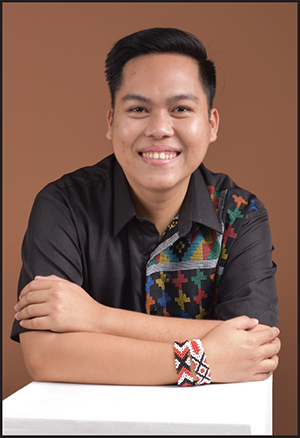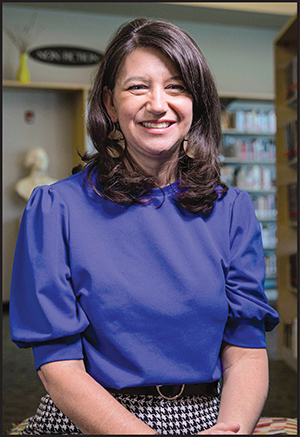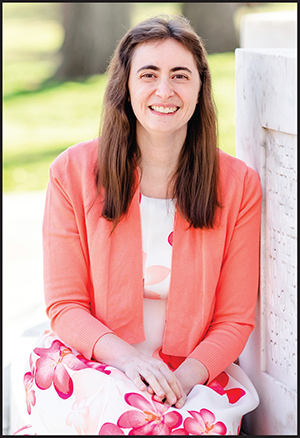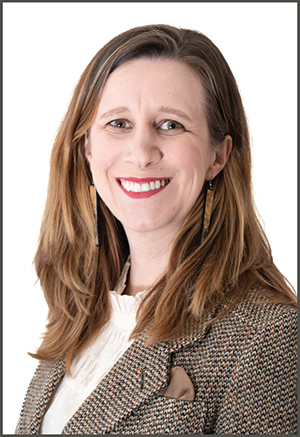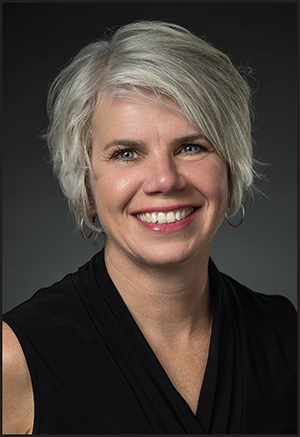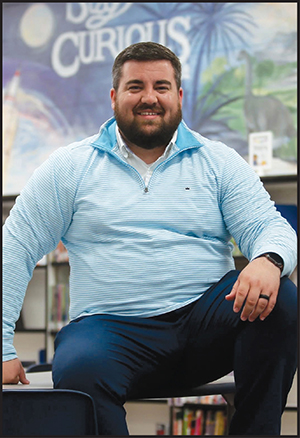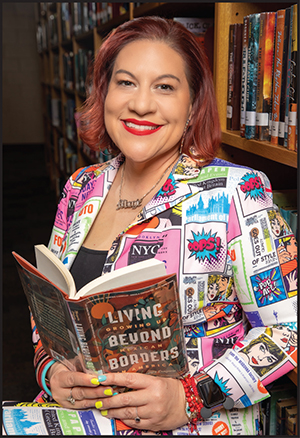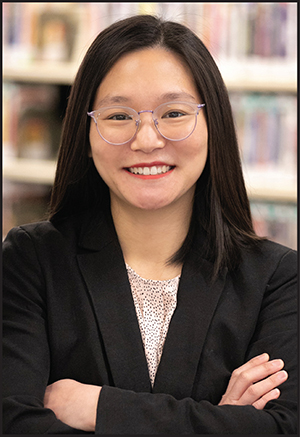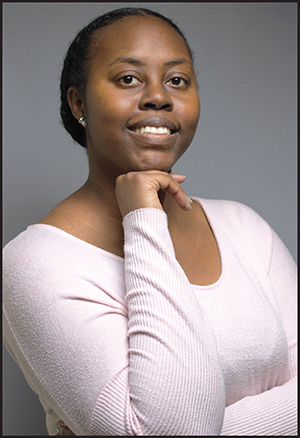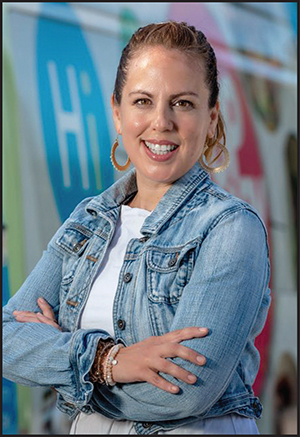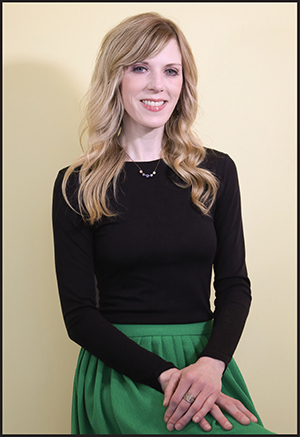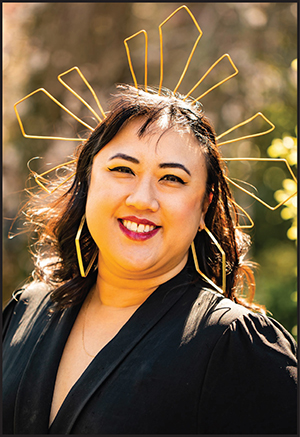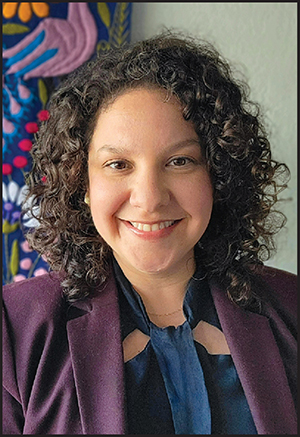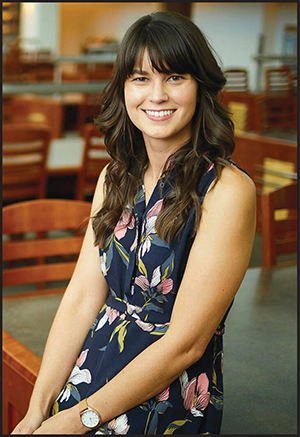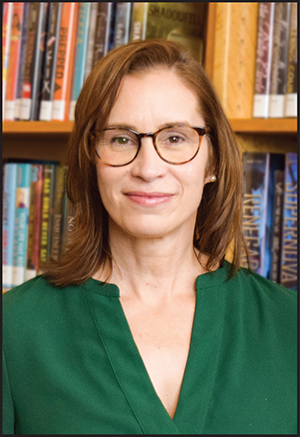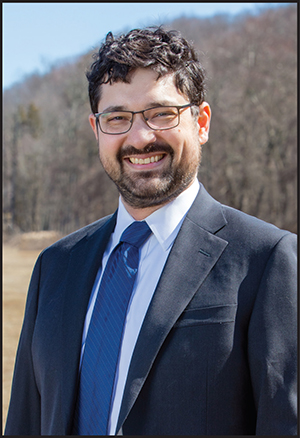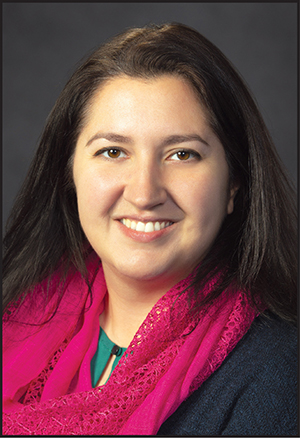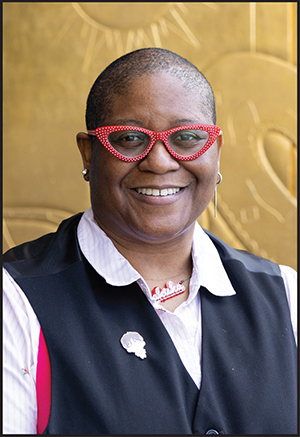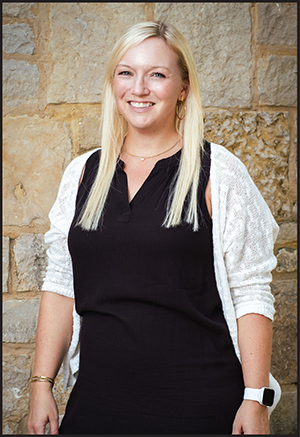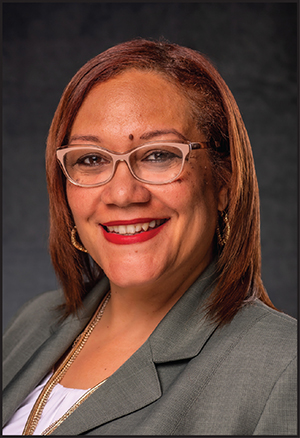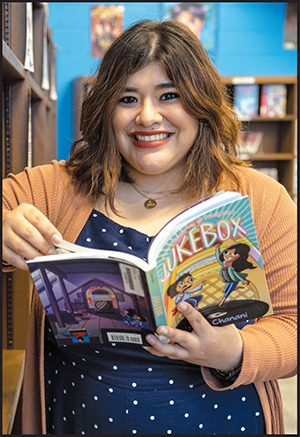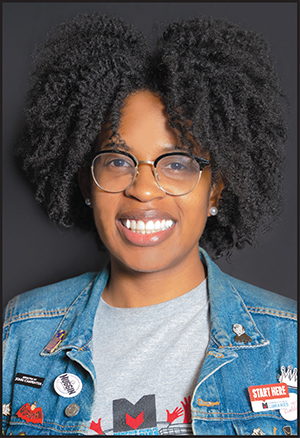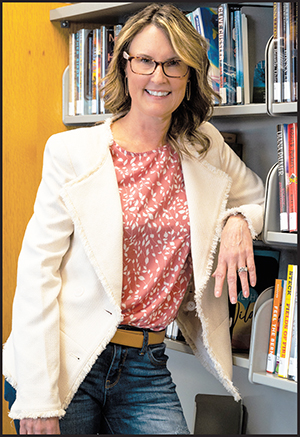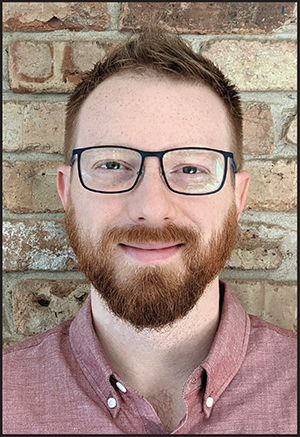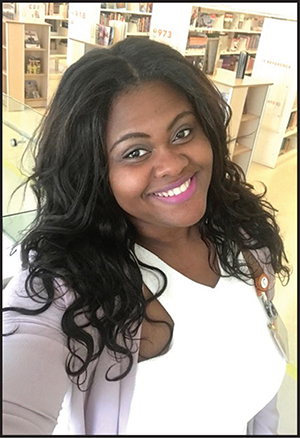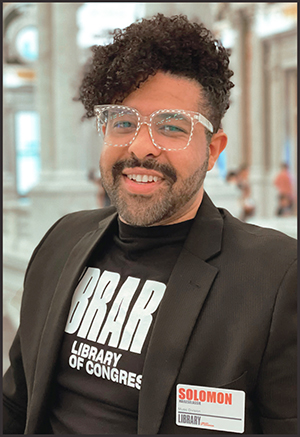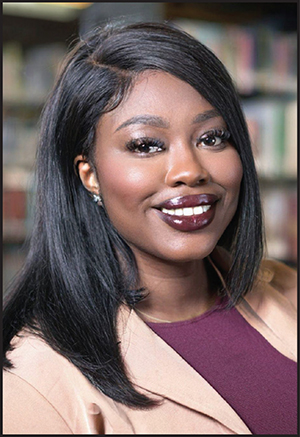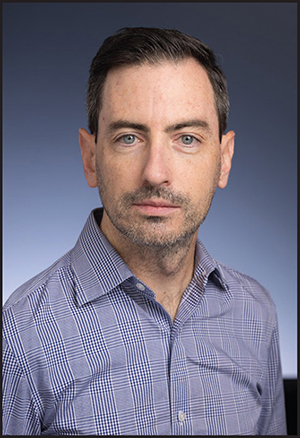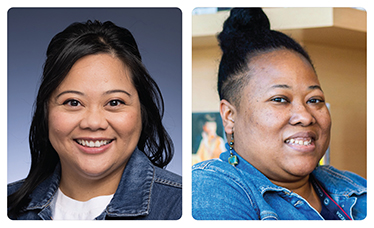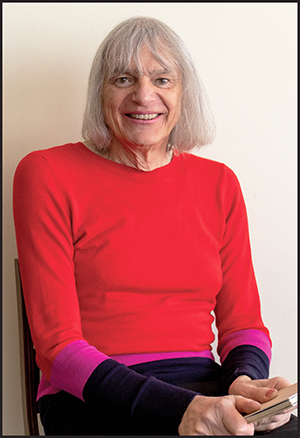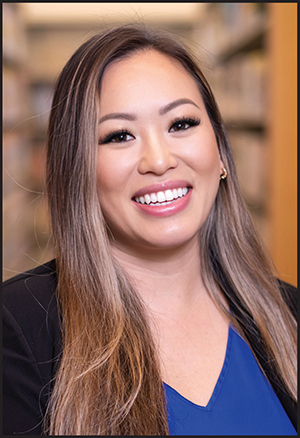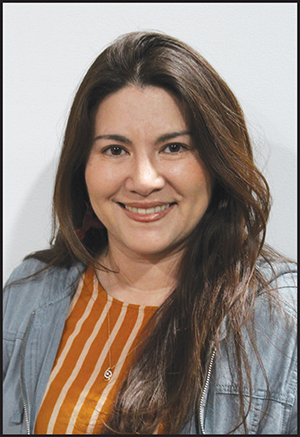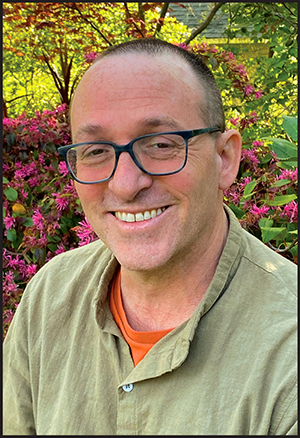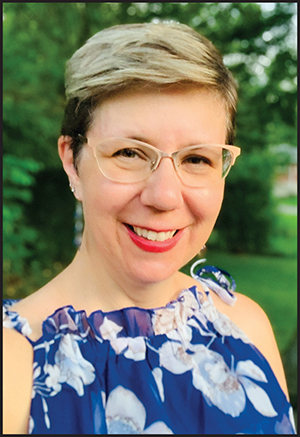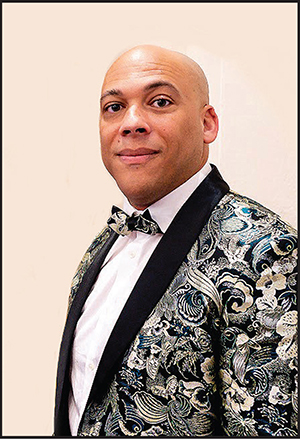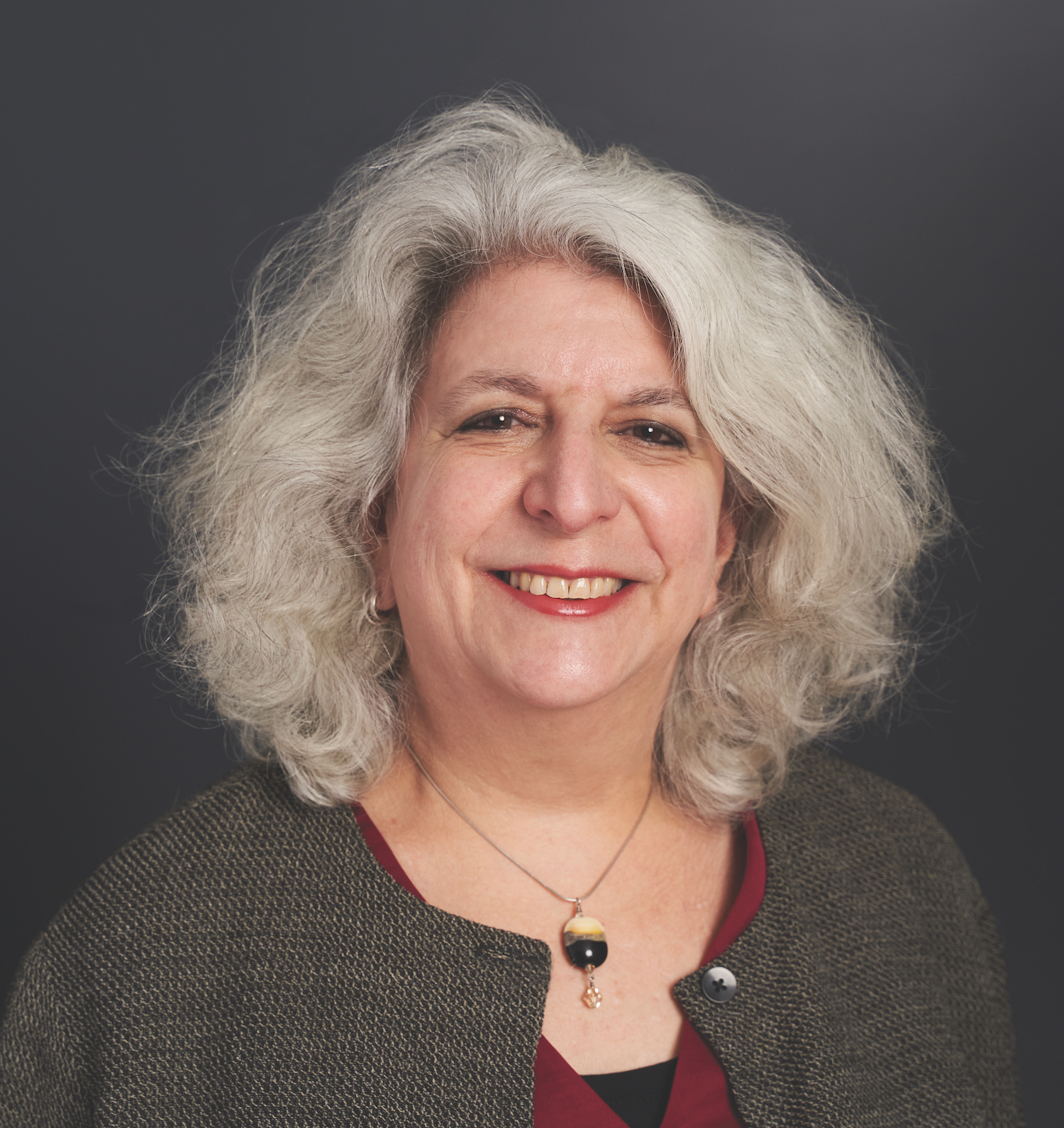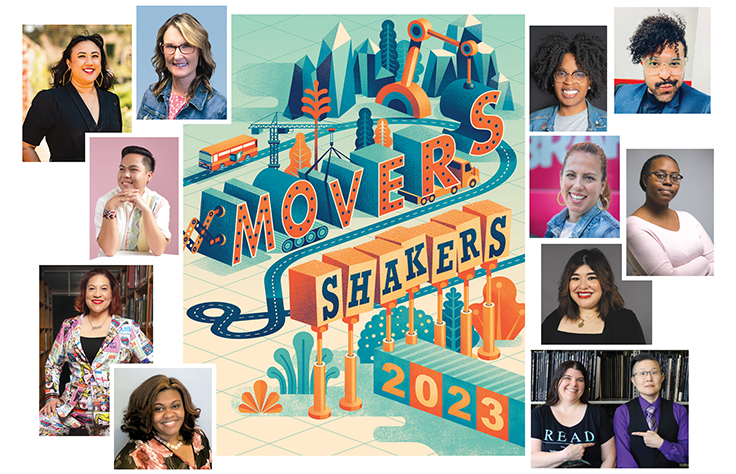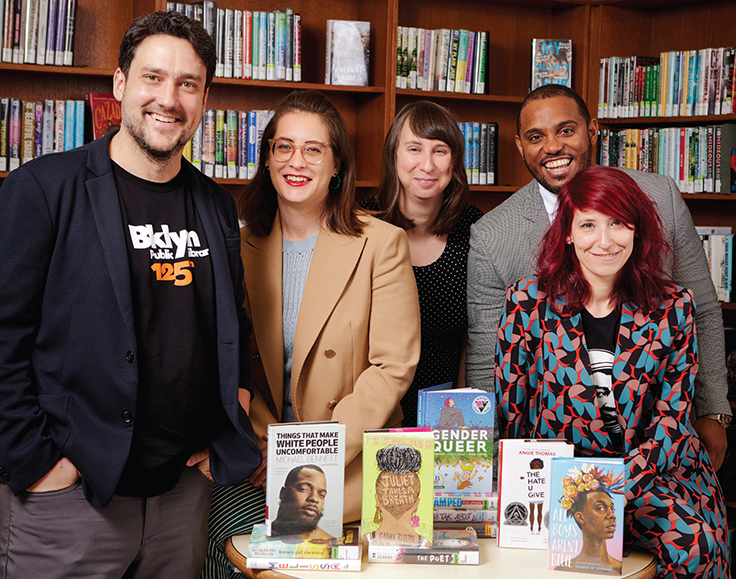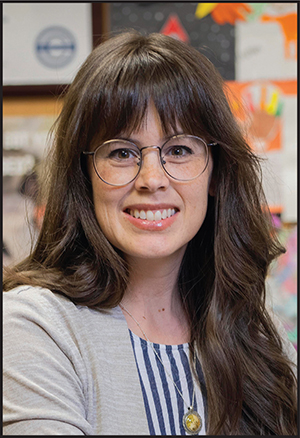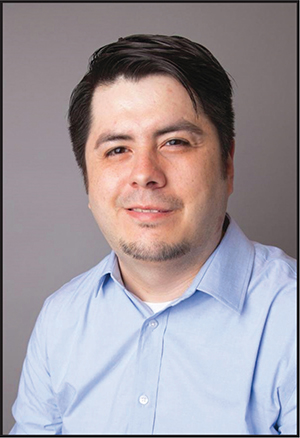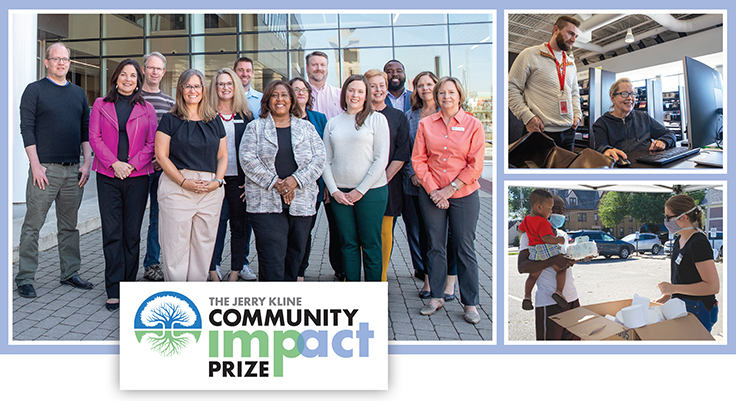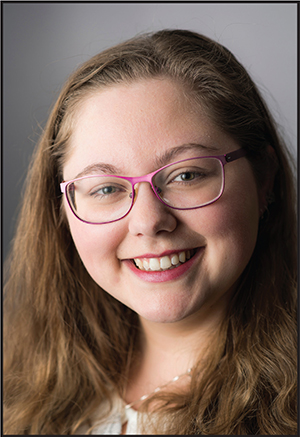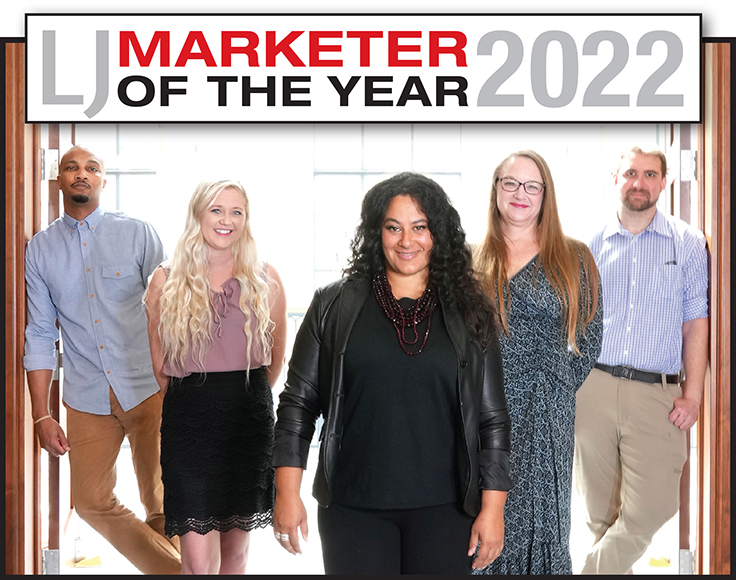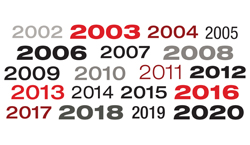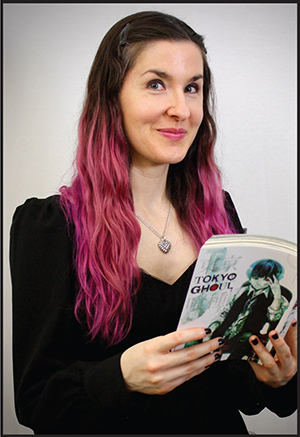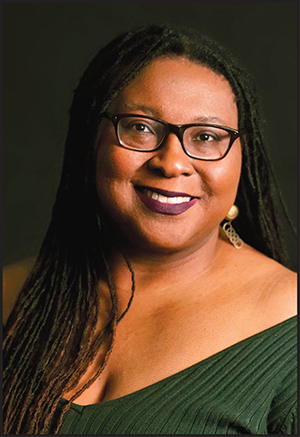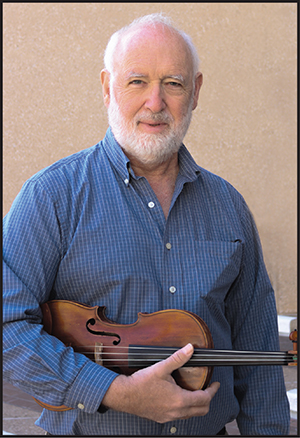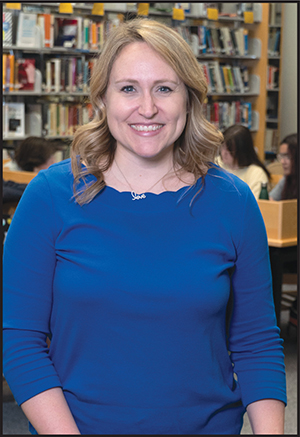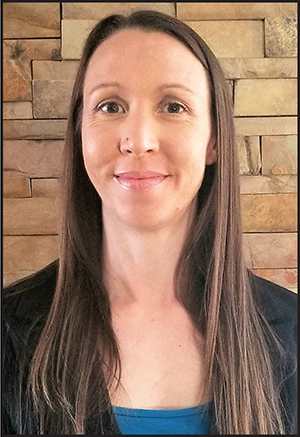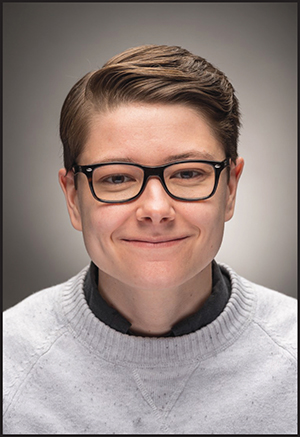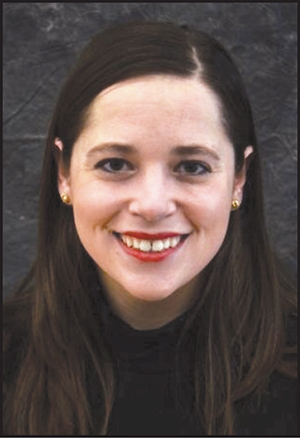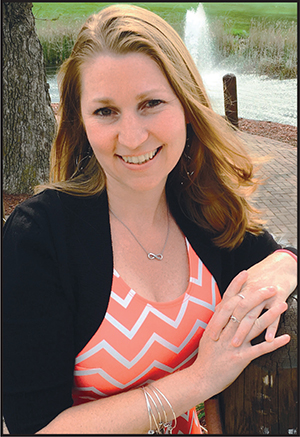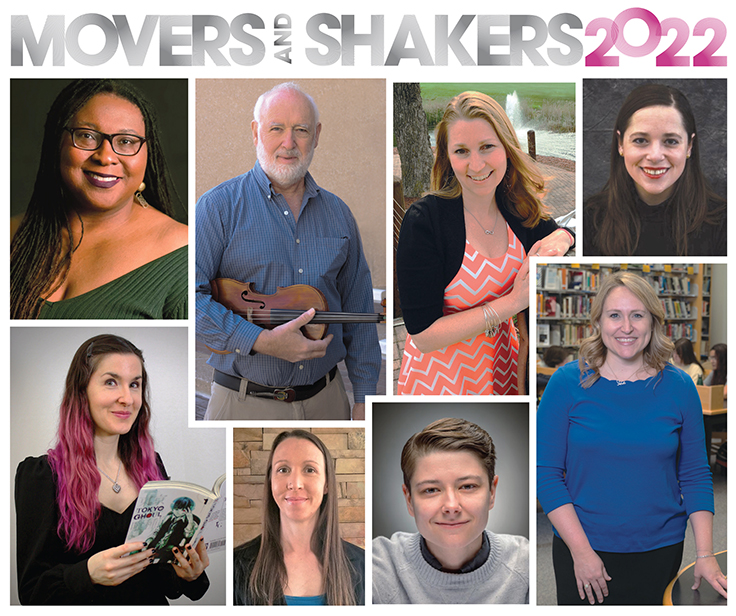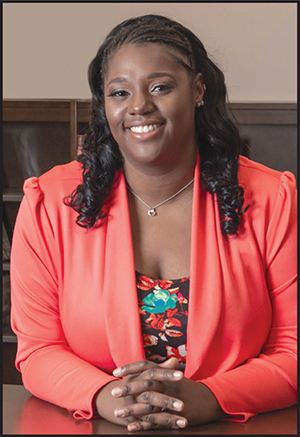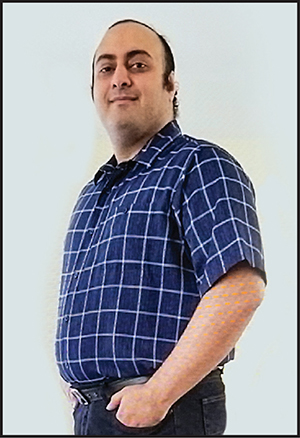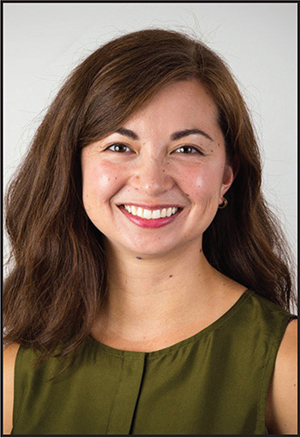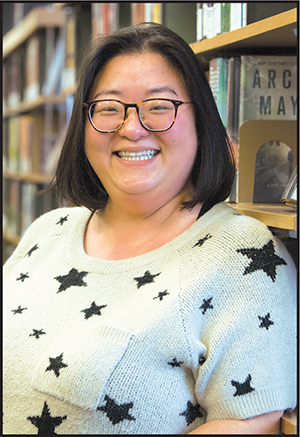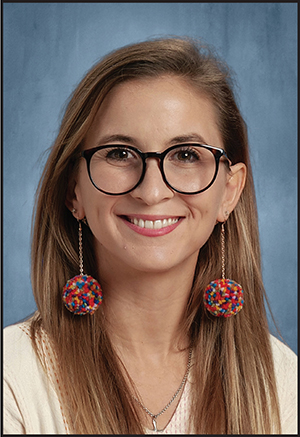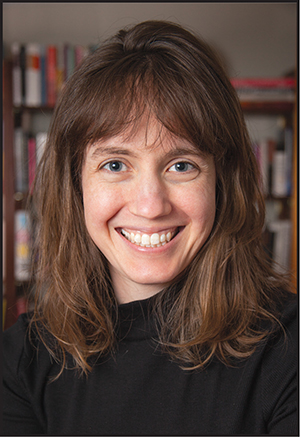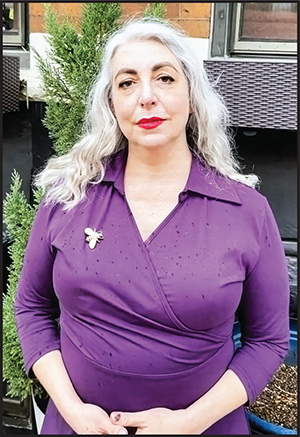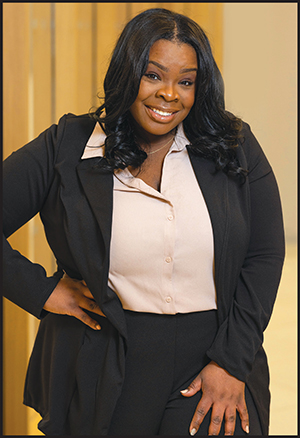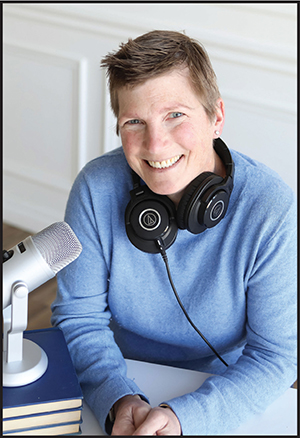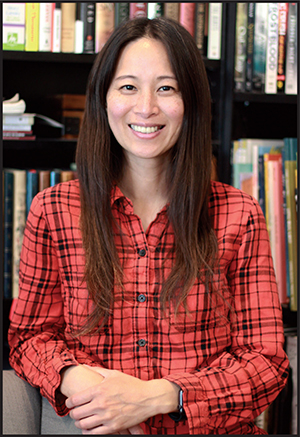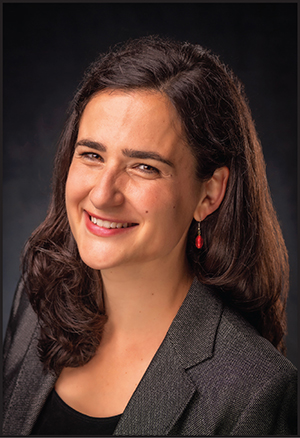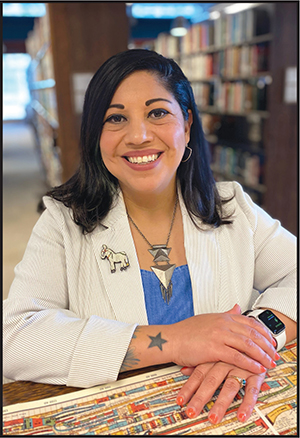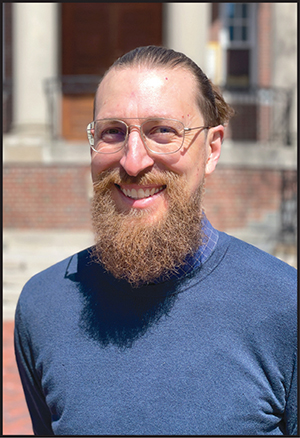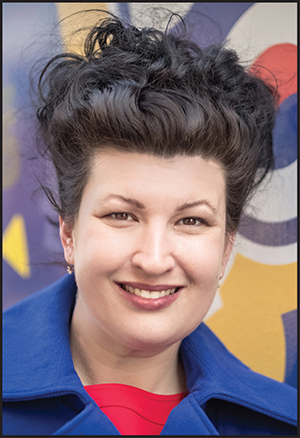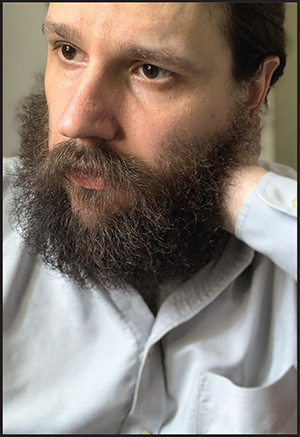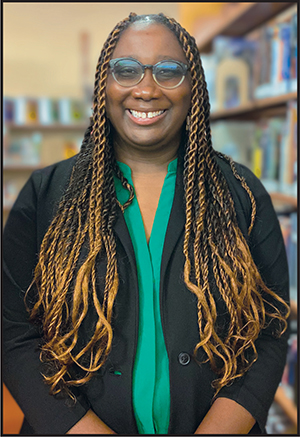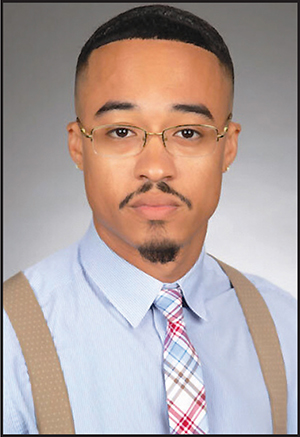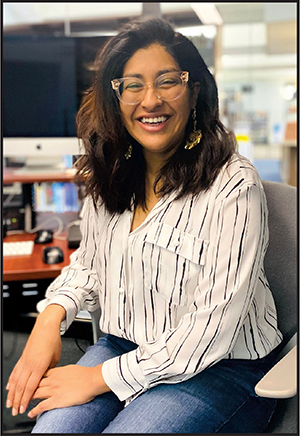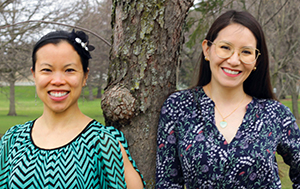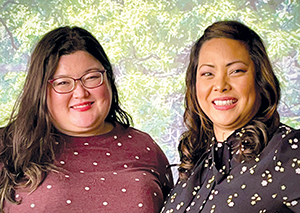Related
Ry Moran, associate university librarian for reconciliation at the University of Victoria, British Columbia, was named a 2023 Library Journal Mover & Shaker for his work bringing the university’s reconciliation department to fruition and developing a podcast called Taapwaywin, which means “truth” or “speaking truthfully” in Michif, a language of the Métis people. LJ recently touched base with Moran to learn more about his work with truth and reconciliation, and how the podcast is going.
Rhiannon Sorrell, assistant professor and instruction and digital services librarian at the Kinyaa’áanii Charlie Benally Library at Diné College in Arizona, was named a 2023 Library Journal Mover & Shaker for her work preserving and digitizing Native films and storyteller narration. We recently spoke with Rhiannon to find out more about what she’s working on.
Willa Liburd Tavernier, research impact and open scholarship librarian at the Herman B. Wells Library at Indiana University–Bloomington, was named a 2023 Library Journal Mover & Shaker for her work facilitating open educational resources and the development of open pedagogy projects. We recently spoke with Tavernier to find out more about these projects and what’s next for her.
Virginia Library Association Executive Director Lisa Varga battles censorship attempts with a combination of hard facts and heart.
Steven Frost, associate chair of undergraduate studies for the Department of Media Studies at the University of Colorado–Boulder, was named a 2023 Library JournalMover & Shaker for their work collaborating with Boulder Public Library on its makerspace and Slay the Runway event. LJ recently spoke with Steven to learn more about these projects and what they’ve been up to since.
Regina Gong was named a 2023 LJ Mover & Shaker for her work developing a student-centered Open Educational Resources (OER) program at Michigan State University (MSU) Libraries to help make education more accessible and equitable, especially for underserved populations. Since being named a Mover, she’s moved on to a position that’s providing her a wider range of diversity, equity, and inclusion (DEI) opportunities.
The Art of Relationship Building: Kent District Library Wins 2023 Jerry Kline Community Impact Prize
Centering genuine relationships, along with an emphasis on community service and creative partnerships, has earned Kent District Library, MI, the 2023 Jerry Kline Community Impact Prize. Honorable mentions go to Henrico County Public Library, VA, and Kenosha Public Library, WI.
Susan Ivey was named one of Library Journal’s 2023 Movers & Shakers for her work making data resources more accessible for researchers at North Carolina State University in Raleigh. We recently reached out to learn more about what that role requires from her and what benefits it provides the university’s researchers.
Faced with a major post-lockdown attendance drop, the marketing team at Baltimore's Enoch Pratt Free Library is re-engaging patrons with creative, data-driven campaigns. Patchogue Medford Library, NY, received honorable mention.
Eileen Rhodes was named one of Library Journal’s 2021 Movers & Shakers for her work bringing Open Educational Resources to Capital Community College in Connecticut, enabling students who struggled with the cost of textbooks to continue pursuing their degree. We recently reached out to Rhodes and learned she’s currently the interim library director for Connecticut State Community College, a role that’s shifted her priorities and sent her in new directions.
Cody Library, WY, and Marathon Public Library, TX received honorable mentions for LJ and Ingram's Best Small Library in America 2023 award.
Libraries are many things to their communities—and sometimes, they’re everything. The Page Public Library, on the northern Arizona border, is considered not just a library but the essential core of the community, and has been named LJ and Ingram's Best Small Library in America 2023.
When a series of unanticipated hardships hit Breathitt County, KY, its library came forward to serve residents in large and small ways. For its critical community work now and looking ahead, Breathitt County Public Library is the recipient of LJ and Gale's inaugural Libraries Defying the Odds award. Charleston County Public Library, SC, is awarded honorable mention for its ongoing work to address food insecurity.
Emma Molls, currently the director of open research and publishing for the University of Minnesota Libraries, was named a 2021 Library Journal Mover & Shaker for their work with open research. LJ followed up with Molls to learn what they’ve been up to since then.
Dr. Shannon Jones, director of libraries and professor at the Medical University of South Carolina–Charleston, was named a 2021 Library Journal Mover & Shaker for her significant commitment to mentoring other library workers in medical and academic librarianship, as well as creating a Medical Library Association book club focused on books discussing diversity, equity, and inclusion. LJ recently talked with her to learn what she’s been doing since then.
Alicia Deal and KayCee Choi nominated each other for the same reason—their advocacy for d/Deaf (Hard of Hearing/Deaf) culture. The two have spearheaded Dallas Public Library programming for National Deaf History Month in April; Deal and Choi created programs about major league baseball player William Hoy and author and activist Helen Keller, among others, which drew about 100 patrons total.
Lindsey Kimery stepped up her advocacy efforts as the Tennessee legislature crafted bills such as the Age Appropriate Materials Act of 2022 and an Obscenity and Pornography bill, each an attack on intellectual freedom. “Lindsey rallied librarians across the district and state to speak up and speak out on behalf of those who would be affected,” says nominator Alyssa Littrell, Metro Nashville Public Schools district librarian.
In Shavonn-Haevyn Matsuda's MLISc program at the University of Hawai‘i at Mānoa, she focused on examining and challenging inadequacies of access in information systems and library services. Later, after becoming head librarian at the University of Hawai‘i Maui College Library, Matsuda’s doctoral research investigated creating a system of information for Hawaiian archives and librarianship.
As senior librarian at San José Public Library, Lizzie Nolan manages programs, collections, and outreach for both the Children’s Room and teen space known as TeenHQ and has executed and evaluated yearlong literacy programs for the entire 26-branch system. In 2021, Nolan was tasked with leading San José’s Youth Commission, the official youth advisory group to the mayor and city council.
In 2015, as an offshoot of a student leadership congress where he was a delegate, Kevin Conrad Tansiongco founded the Magbasa Tayo (Let’s Read) Movement, an advocacy campaign promoting the importance of community reading centers and public libraries in the Philippines.
When Missouri’s Department of Elementary and Secondary Education stopped gathering data on school library collections, Amy Taylor found herself talking to others equally concerned with the loss of the information school libraries needed to advocate for funding. While public libraries have a legislative committee to lobby at the state level, no school library advocacy committee existed. Taylor stepped up to chair a task force studying how school librarians could raise awareness of what they do.
As the synagogue librarian for Temple Rodef Shalom Library and a children’s book consultant, Kusel says she wants to see more literary mirrors for children who are Jewish and offer windows to youth of different faiths to better understand Jewish beliefs and culture.
When Eryn Duffee moved to Washington from Tennessee in early 2021, she immediately jumped into leadership at the Washington Library Association, where she is working to transform the statewide school system.
As chair of the Meridian Library District (MLD) Board of Trustees, Megan Larsen passionately defends the right to read. Like many libraries around the country, MLD faces attacks from a vocal minority seeking to restrict access to titles featuring diverse content, and recently, a group filed a petition attempting to dissolve the district. “Sometimes, the fight comes to you, like it or not,” Larsen says.
Willa Liburd Tavernier was an attorney in the British Virgin Islands (BVI) when she entered the MA program at the University of Iowa, aiming to lead knowledge-management initiatives at her law firm. Toward the end of the program, hurricanes Irma and Maria ravaged the BVI. Unable to return, she applied to U.S. academic library residency programs and received an offer from Indiana University–Bloomington, where she’s been ever since.
As a librarian at Tazewell–New Tazewell Primary School, TN, Blake Hopper strives to keep the library space student-centered. One of his most ambitious initiatives involves challenging students to read 40 books per school year, which he promotes through family events. He’s made it a priority to have the library collection reflect the diverse student body as well.
As an eighth grade reading teacher in the Rio Grande Valley, Margarita Longoria noticed a lack of literacy events and diversity in curriculum offered for young adults. Most libraries and bookstores focused on elementary readers; Longoria felt that young adults deserved attention, too. She also knew that it was crucial for young people to see themselves in the books and authors they read, so she founded the Border Book Bash festival.
“Literacy justice is critical to social justice,” insists Amy Kyung-Eun Breslin, whose days are spent out in her community spearheading branch-style literacy programs at schools and other stakeholder venues—and busting through access barriers.
Growing up as a Black girl in a suburban neighborhood, Kymberlee Powe found it almost impossible to locate books reflecting her lived experience. Today Powe strives to support libraries in growing their evolving role as community hubs, training librarians to curate collections that reflect a range of people, stories, and experiences.
After completing her MLIS at the University of Rhode Island in 2014, Rhiannon Sorrell, a member of the Dineì (Navajo) nation, returned to reconnect with her community and deepen her work. As instruction and digital services librarian at Diné College—the first tribally governed and accredited college in the United States—Sorrell has taken on projects that dive deeply into Navajo language and culture.
As the lead instructor with the On the Road to Kindergarten mobile library, Irma Fernandez helps transform the lives of children in Howard County’s underserved communities through early literacy programs. The van visits all of the pre–K students at every elementary school in the county, bringing library resources and material to children of all backgrounds to help them get ready for kindergarten.
At the University of Victoria, Ry Moran has brought his experience to the libraries’ work of reconciliation, decolonization, and understanding Indigenous history, supporting students and faculty through a range of initiatives. The most recent of these is hosting and producing a podcast, Taapwaywin, which means “truth” or “speaking truthfully” in Michif, a language of the Métis people.
In addition to being a beloved story time leader and early childhood literacy advocate, Katie Clausen—“Miss Katie” to her youngest stakeholders—holds a professional certification in Adverse Childhood Experiences. When she realized that families in her community needed age-appropriate mental-health resources, she and colleague Elizabeth Forkan created a circulating collection of Resiliency Kits—books, games, activities, and information for adults and children on themes of grief and loss, divorce, addiction, emotions, and bullying.
Jaena Rae Cabrera has a “not-so-secret agenda,” according to Alan Wong, learning and instruction librarian at San Francisco Public Library (SFPL). “She wants to increase Filipino American visibility and representation at [SFPL],” he says. Cabrera’s efforts include joining forces with Pilipinx American Library, a mobile, noncirculating collection and programming platform, on two events at the Public Knowledge project, a collaboration with the San Francisco Museum of Modern Art, in 2018 and 2019.
Karla Alvarez has come full circle. While in high school, she got her first job at the San José Public Library as an after-school tutor. Today, after more than 15 years spent traveling to work in conflict studies and community building—a journey that included Mexico, Belize, Kenya, the Philippines, and more—the San José native is back at the city’s library system as Community Programs Administrator, Equity & Inclusion Services. Throughout, she has focused on eliminating barriers and strengthening access to services.
While serving as Open Educational Resources (OER) and Student Success Librarian at Michigan State University (MSU) Libraries, Gong launched a student-centered OER program in 2019 to address the overwhelming barriers of affordability and access students faced. At the time, fewer academic libraries utilized free open learning, teaching, and research materials.
In 2016, Frost founded Sewing Rebellion at Boulder Public Library's BLDG 61 to encourage people to make their own clothes or repair damaged clothing rather than buy new. The program became popular in Boulder as the upcycling and creative reuse movements grew. In 2019, Frost retired Sewing Rebellion. But when approached by a colleague about joining a project called Slay the Runway, in collaboration with the library and local LGBTQIA+ organizations, Frost jumped at the chance.
For researchers at North Carolina State University, computing and data resources are plentiful. However, finding and employing the right tools for a particular project can be challenging, whether for a researcher still in the planning or discovery phases of a project or an administrator. Susan Ivey’s mission as director of the new Research Facilitation Service: Cut through that confusion.
The Librarian Parlor (aka LibParlor), which Chelsea Heinbach cofounded and operates with Nimisha Bhat, Hailley Fargo, and Charissa Powell, is a platform for library workers and LIS students to ask questions, discuss issues, and share expertise on developing, pursuing, and publishing library research. The project was conceived when Heinbach attended her first large library conference and encountered likeminded library workers who also felt the need for a centralized meeting place.
Lydia Lopez’s work opened access to services for Miami-Dade county residents who might not otherwise have had them—lifesaving medical tests and vaccines, entry into one’s home following a hurricane or fire, or even just the opportunity to reserve government-owned tennis courts—all because they don’t meet the requirements to obtain a driver’s license or state-issued identification.
Christopher Brannon and George Williams are go-to experts helping the free, open source Koha integrated library system (ILS) grow and thrive in U.S. libraries. Both have been active leaders in the koha-US user group: In addition to their work on committees and regular appearances as presenters and panelists at conferences and events, Brannon is the organization’s current president, and Williams is a past president.
David Greisen is founder, CEO, and the driving force behind Open Law Library, a nonprofit open-access publisher helping governments collaborate, draft, and publish consistent laws with legislative history built to withstand nation state–level cyberattacks and comply with the Uniform Electronic Legal Material Act, all without going through for-profit publishers.
On any given day, Schuylerville Public Library patrons might find director Caitlin Johnson stacking apples or cleaning the public produce fridge. Collaboration with local farmers, food pantries, and the Southern Adirondack Library System, NY, as part of the Farm-2-Library program has allowed SPL to offer tens of thousands of pounds of fresh produce to patrons free of charge.
Rakisha Kearns-White established the Cycle Alliance, a teen advocacy group that fights period poverty and the stigma of menstruation. Since spring 2020, more than 170 teens have attended workshops, helped with distribution days, or volunteered for Cycle Alliance programs. The Cycle Alliance has partnered with international and local organizations to offer period-product distribution days and safe-sex workshops, giving out 200 period kits since 2021.
In 2019, Lambert was selected to be part of the International Society for Technology in Education (ISTE) Equity and Action Forum. ISTE wanted participants to work on a yearlong project involving equity in education.
Brooke McCauley’s career spans activism and politics, anti-hunger/anti-poverty advocacy, and lobbying. In 2019, she learned about a new role at the Howard County Library System—customer experience manager—and made it her own.
Although students are the focus of her work, Quilantan-Garza has also helped more than 25 teachers earn certification as Microsoft Innovative Educator Experts—and her “Tech Yourself” online, self-paced microcredentialing courses help teachers and staff document how they are staying current with the latest educational tools and technology.
Courtney Shaw's innovative programming across numerous communities—including prisons and a local nonprofit that supports youth and adults experiencing homelessness—features Techie Senior classes to help decrease social isolation for the elderly, story time and early literacy education, youth STEM programs focused on coding and robotics, health and financial literacy programs, library card signups and mobile phone circulation, and arts and cultural offerings.
When the Democratic nominee for state representative in Ohio’s 99th district was forced to withdraw from an upcoming election after her home was redistricted by 20 feet, Kathy Zappitello stepped into the race, largely to oppose pending censorship legislation introduced by her opponent that would “prohibit teaching, advocating, or promoting divisive concepts.”
When Daniel Zeiger arrived at Georgia Public Library Service, a major financial and operational challenge faced the state’s library systems—the plethora of individually managed, high-cost, public-access desktop computers. Small library systems were maintaining their own machines with a single IT professional, a tech-savvy director, or no in-house IT at all.
Ashley Allen guides YA patrons along multimedia-related job paths by organizing industry networking opportunities and educational presentations, facilitating their access to scholarships, and overseeing the “Voices of Queens” podcast program. More than 165 students have created 100 episodes of this strictly for-teens, by-teens published program. Combined, they’ve completed at least 900 after-school hours of career training.
In 2019, Librarian of Congress Dr. Carla Hayden was planning a radio interview at the same time that singer, songwriter, and rapper Lizzo was doing a round of publicity. Solomon HaileSelassie suggested that Hayden invite Lizzo—a classically trained flutist—to the Library of Congress (LC) to see its Dayton C. Miller Flute Collection, which contains nearly 1,700 flutes and related materials dating back to the 16th century.
Libraries provide food for the spirit through books, information, and services. Lu Bangura wants to ensure they also nurture their community through the stomach and wallet.
If you missed the viral video by teen punk Asian American–Latine band The Linda Lindas, streamed during the pandemic from a branch of the Los Angeles Public Library (LAPL), you can’t blame Keith Kesler. The social media librarian for LAPL, Kesler boosted the signal of one song, “Racist Sexist Boy,” which has now reached over 10 million people across the library’s channels via YouTube.
Noelle Cruz and Melissa Santosa may seem like an unlikely team. Santosa worked for years in education and counseling before landing at Alameda County Library (ACL). Cruz worked multiple jobs simultaneously while earning her MLIS and searching for a library position. Both have leadership roles in the JEDI (Justice, Equity, Diversity, and Inclusion) initiative, ACL’s effort to confront racism in both its organization and its community.
In 2022, Tara Sypniewski—a longtime trans activist—opened the Trans Library in a former antique store on one of Ottawa’s most diverse main streets. It’s a safe space for trans and gender diverse people, she says, “where they can meet, learn about themselves, and investigate their history; a place for parents of trans kids; and a place where the community can engage with trans folks on a personal level.”
As anti-Asian–based racism increased during COVID-19, Lynn Nguyen and the Chinatown Teen Council (CTC), a program she created in 2019, participated in the library’s Teens Leading Change civic engagement project to study the impact of food insecurity in Chinatown—and, under Nguyen’s guidance, were able to take intentional, meaningful action.
When Sara Elisa Proaño-Motta arrived in Michigan in 2008, she worked as a translator and interpreter serving communities that faced barriers to services or resources. “This led me to recognize the library as one of the most important resources for case managers, advocates, and community navigators,” recalls the Ecuadorian native. “The work humbled me, informing my understanding of the many cultures represented in Kent County.”
When Robert Weinstein began working at Brooklyn Public Library (BPL) in early 2021, most branches still offered only lobby services because of COVID-19 restrictions, and bookmobile services were shut down entirely. Weinstein was hired to get the library’s bookmobiles back up and running using an all-outdoor bookmobile service model.
Angela Hursh’s passion for helping libraries promote their programs and services is unrivaled, and her blog, superlibrarymarketing.com, is an invaluable resource for libraries around the world. Since the blog’s launch in 2015, she’s published 425 articles and videos, which have been viewed more than 426,000 times. As manager of engagement and marketing for NoveList, Hursh lately has been using her skills and hands-on experience to help libraries uphold their First Amendment rights by fighting book bans.
The list of luminaries who have made in-person appearances at the Wilmington Public Library (WPL) since Jamar Rahming became executive director in 2018 is a long one. Angela Davis, LeVar Burton, Dolly Parton (who selected WPL for her early childhood reading initiative), Dennis Rodman, Pam Grier, Anthony Ray Hinton, Jennifer Lewis, Malcolm Jamal Warner, and a cast reunion of A Different World are just a few.
This month, as we have every year since 2002, LJ celebrates a new cohort of Movers & Shakers. The 49 individuals profiled hail from every corner of libraryland and beyond. And while I agree that the award can’t compare with the sheer number of bright lights in the library firmament, I also think the emphasis on individuals isn’t a bad thing. Yes, these services need everyone on board, every day, to carry them forward and turn them into reality. But someone jump-started those realities, and that’s what Movers & Shakers celebrates.
What are the biggest issues facing libraries today? Take a look at this year’s class of LJ’s Movers & Shakers, who are engaging with the issues head on.
Brooklyn Public Library's Nick Higgins, Amy Mikel, Karen Keys, Jackson Gomes, and Leigh Hurwitz have been named LJ's 2023 Librarians of the Year for their work on Books Unbanned, providing free ebook access to teens and young adults nationwide to help defy rising book challenges across the country.
Virginia Cononie, assistant librarian/coordinator of reference and research at the University of South Carolina Upstate Spartanburg Library, was named one of Library Journal’s 2022 Movers & Shakers for her library advocacy work. LJ recently reached out to Cononie to learn more about her Share Your Story campaign, a collection of success stories from libraries in South Carolina that were compiled into a book and sent to South Carolina lawmakers.
Elisandro Cabada has worn many hats during his career at the University of Illinois at Urbana-Champaign: Assistant professor for the university library, interim head of the Mathematics Library, and 3-D printing project coordinator, among others. His commitment to developing and using technology for library service and outreach won him a 2022 Movers & Shakers award. Library Journal recently reached out to learn more about his innovative work.
Conscious inclusiveness has earned Cedar Rapids Public Library the 2022 Jerry Kline Community Impact Prize. Honorable mentions go to New York’s Patchogue-Medford Library and Columbia, SC’s Richland Library.
Lorisia MacLeod, currently learning services librarian at the Alberta Library, Canada, previously worked as an instruction librarian at NorQuest College, Edmonton. A member of the James Smith Cree Nation, MacLeod realized early in her career that there was a major problem with properly citing Native and Indigenous sources in academic papers. The work she set in motion to correct this issue led to her being named a Library Journal 2022 Mover & Shaker. LJ recently caught up with her to learn more about her efforts.
The six-person marketing department at Nashville Public Library is made up of enthusiastic collaborators—willing to listen, iterate, contribute to each other’s strengths, and involve the rest of the library in coming up with great ideas—with a strong leader who inspires creativity and teamwide respect. Los Angeles and Virginia Beach received honorable mentions.
Jillian Rudes didn’t grow up reading manga. But when she discovered it in her first year as a school librarian, she realized that it is a critical format for teaching, cultivating a love of reading, and giving kids what they want, and took a deep dive in, reading everything she could get her hands on.
During a job hunt while unemployed, Jessica Chaney learned about the opening of CLOUD901, Memphis Public Library’s social, creative, production, research, and performance technology lab. Chaney thought she might be able to contribute her film experience—but library leadership realized she had management potential.
Bill Smith’s love for community service and music led to him work with Dallas Public Library (DPL) staff and volunteers to create a schedule of classes in musical instruction and theory for underserved communities.
With disinformation more prevalent than ever, teaching students how to analyze and understand what’s coming at them has never been more important.
The Outreach Department at High Plains Library District in Erie, CO, was a seven-person department when Brittany Raines became supervisor. Under her leadership, it grew to 25 staff spread out across the entire county and was retitled as MOVE (Mobile, Outreach, Virtual, and Experiences).
As 2020 Maryland Library Association (MLA) Conference Director, rather than cancel the conference due to the pandemic, Naomi Keppler worked with staff to reenvision the event online, collaborating with MLA’s technology committee to build a virtual platform that other states replicated.
Barbara Alvarez, while teaching at three iSchools, focuses on building community partnerships for health. To investigate the pandemic’s impact on abortion services for Wisconsin residents, Alvarez conducted weekly mystery calls to 29 abortion clinics in Wisconsin, Illinois, Minnesota, Iowa, and upper Michigan..
A few years ago, Melissa Thom attended Nerd Camp for the first time. “I was hooked,” she says. “It’s such a high-energy day where educators, librarians, teachers, illustrators, and authors are all there to nerd out about books. And it’s such an amazing model—it’s a free event, and everybody is there because of the pure joy of books and reading and literacy.”
Marquita Gooch-Voyd—who became the first person of color to receive the Georgia Public Librarian of the Year award in 2020—sees the impact that technology can have on patrons’ lives and careers.
Babak Zarin has expanded Access Services at the Central Rappahannock Regional Library (CRRL) to include accessibility in all forms, developed and conducted an accessibility audit, and shared information and insight through presentations for other library systems and one-on-one conversations with library staff. The Deaf Culture Digital Library is the culmination of two years’ work reviewing and developing a program to meet the needs of the Deaf and hearing-impaired community, not just within CRRL, but throughout the Commonwealth of Virginia.
Robin Davis knows that “accessibility isn’t one person’s domain, but everyone’s responsibility.” This shows in the work she does with her colleagues at North Carolina State University (NCSU) Libraries in the User Experience department and on the recently formed Accessibility Committee, as well as mentoring students.
No matter how robust a library’s services, they can’t reach those who aren’t aware of them. St. Louis County Library (SLCL) Reference Manager Jennifer Gibson has been working to bridge the library’s outreach gap in several critical areas.
Throughout his career, Elisandro Cabada has been closely involved with the creation of tech spaces in libraries, including the design and development of the IDEA Lab, and the Breakerspace digital scholarship and innovation center at the University of Minnesota’s Walter Library. In addition, he is currently developing library services for CI COM—described as the world’s first engineering-based college of medicine—with a focus on "innovative instructional support, scholarly productivity tools, and entrepreneurship."
Jessica Fitzpatrick meets student athletes on their turf as she grows the next generation of book enthusiasts. “I became aware that our athletes weren’t reading because of how many different responsibilities they handled,” she explains. “At a Title 1 school, our students are not only busy being athletes, students, and just teenagers but they are also working to put food on the table and support their families.”
Queens Public Library’s (QPL) Immediate Access: Technology Reentry program helps new parolees overcome the many barriers to restarting their lives outside of prison. Program Manager Jill Anderson is an expert in removing roadblocks. This includes listening to program participants and community partners about what they need or can offer, and to funders about what opportunities are available.
When life gives you honeybees, make honey. That could be the motto of Amy Thatcher, manager of the Free Library of Philadelphia’s Richmond Branch. “I believe pushing against boundaries yields opportunity,” she says. “Be adventurous. Try implementing what appears to be impossible. Most of the time, it’s possible.”
When Nicole Bryan took on the position of Neighborhood Library Supervisor for the Macon Branch of the Brooklyn Public Library (BPL) in January 2020, she could not have imagined guiding her branch through a pandemic. In those two years, however, Bryan developed outdoor community programming, a systemwide special edition library card, and programs to reinforce community connections.
When Amy Hermon transitioned from being a history teacher to a school librarian, she found that her on-campus support network drastically dwindled. Teachers and staff were great, but there was no one with the same job available to talk to and draw inspiration from. This inspired Hermon “to create something that has the potential to help people all around the world, and then commit to creating that connection week in and week out.” In 2018, she created School Librarians United.
Jane Gov believes that “to really understand what teens want, they must be involved in the planning.” This is the foundation for the Teen Volunteer and Teen Advisory Board (TAB) programs. The programs’ goal is to be strategic in how the library utilizes the skills of volunteers, and to support a team that doesn’t only give advice and assist with library activities, but creates ideas and makes them happen.
Among Katie DiSalvo-Thronson projects is building a portal for students and families in need with information about finding food, housing and rental assistance, unemployment, and mental health resources. Knowing that many students didn’t have access to the internet, she worked to produce a print version included with free lunches distributed by local schools.
Ady Huertas grew up in the library, first while learning English as a preteen and then at 16 serving as library aide at the San Diego Public Library. She celebrates 25 years with the system this year.
“It’s been the most rewarding career move I never anticipated,” Luke Kirkland says of becoming a librarian. Kirkland initially set out to be a musician, but found his stride leading the teen department at Waltham Public Library. “I’m incredibly honored to receive this recognition. The credit should really go to the teens who made the Teen Room and Real Talk the space that it is.”
Perry joined Mid-Continent Public Library in 2013 in the new role of business specialist. She spent four years working on a plan to provide business information education in Spanish with two community partners, hosted a support group during quarantine about virtual programming, and helped develop a small business support team that was active in the community.
Shortly before Gregory Stall completed his MLIS, two simultaneous internships—at the Smithsonian Institution and the Library of Congress—introduced him to the excitement of public programming with formidable collections. At New York Public Library (NYPL), he has tapped into his own curiosity to stoke interest and bring the community to the library, both in person and virtually.
Raemona Little Taylor is not satisfied with libraries’ success as spaces of inclusion. “I feel like the first step is acknowledging the long history of libraries as segregated spaces,” she says. “Until libraries and librarians grapple with their history as gatekeepers for white-dominant culture, they will struggle to create welcoming and inclusive workplaces where diverse workers feel like they truly belong.”
Dieter Cantu knows the power of education. And after having spent three years incarcerated in Texas’s juvenile justice system, he also knows the difficulties teens face getting an education in those systems.
Xenia Yolanda Hernández has collaborated with agencies and nonprofits to help families and businesses in Saint Paul, MN, most impacted by the economic fallout of the pandemic.
After George Floyd’s murder in May 2020, Cindy Khatri advocated for Downers Grove Public Library (DGPL) to issue its first anti-hate statement. She was then tasked with writing the next, following the March 2021 murder of eight people at three Atlanta spas, six of whom were Asian women. She recruited Van McGary as coauthor because “I don’t know if I can do this on my own, and I want to share my platform of power,” she remembers thinking. “We’ve been a dynamic duo ever since.”
In late 2020, Sophie Kenney founded the Reaching Across Illinois System (RAILS) BIPOC (Black, Indigenous, people of color) Library Workers group. At the first meeting, Kenney opened the floor to anyone who wanted to be a co-leader, paying forward the leadership opportunities she’d received. Heidi Estrada stepped up. “The rest is amazing history,” says Estrada.
ALREADY A SUBSCRIBER? LOG IN
We are currently offering this content for free. Sign up now to activate your personal profile, where you can save articles for future viewing
